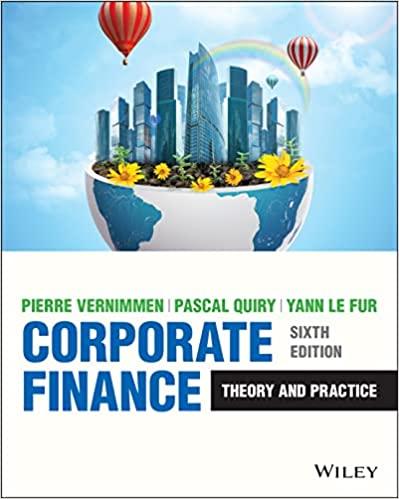Companies A and B each have to pay 100 to their creditors in one year. The risk-free
Question:
Companies A and B each have to pay 100 to their creditors in one year. The risk-free rate is 5% per year. Below are the key figures for companies A and B, before and after a capital increase of 50 that they are planning for the purpose of financing new investments:
A B Before After Before After Value of operating assets 100 150 100 150 Volatility of operating assets 10% 10% 40% 40%
Equity value 7 ? 18 ?
Value of debt 93 95.1 82 92.1 Implicit interest rate on debt 7.5% 5.2% 22% 8.6%
What is the equity value of A and B after the capital increase? Show that it is not in the interests of the shareholders of A or B to carry out a capital increase to finance investments. Does the capital increase create value? Show that, nevertheless, shareholders' wealth is increased. Do you think that the creditors would agree to finance new investments?
Why? How do you explain this paradox?
AppendixLO1
Step by Step Answer:

Corporate Finance Theory And Practice
ISBN: 9781119841623
6th Edition
Authors: Pascal Quiry, Yann Le Fur, Pierre Vernimmen





